To foster new economic thinking, we host convenings that gather together a diverse community of thinkers from different fields, countries, and schools of thought.
INET Webinars & Events
-

The Political Economy of Ecological Change and Economic Security in the Global South
ConferenceThe urgency of the climate crisis cannot be overstated, particularly given its disproportionate impact on vulnerable communities in the Global South.
-
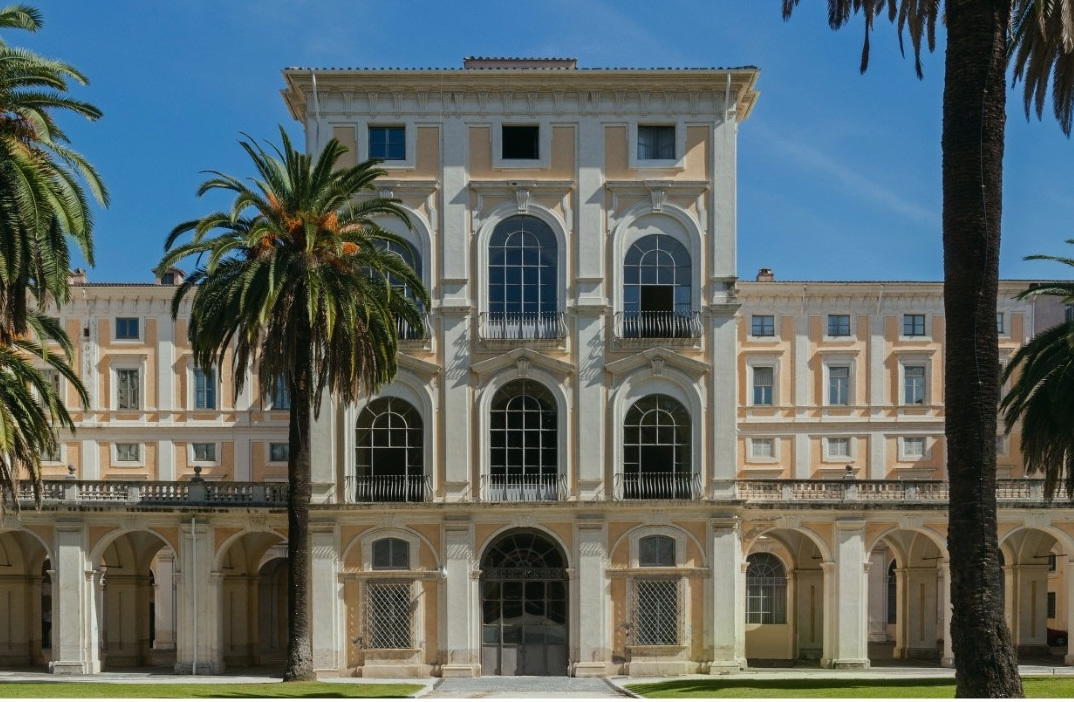
Framing World Interdependence
ConferenceThe conference, which is part of our Academy’s ‘Future of Humankind’ initiative, will provide a global forum of discussion to scholars engaged in analytically understanding the evolution of world dynamics as a process involving a plurality of mechanisms, viewpoints and intersecting trajectories.
-
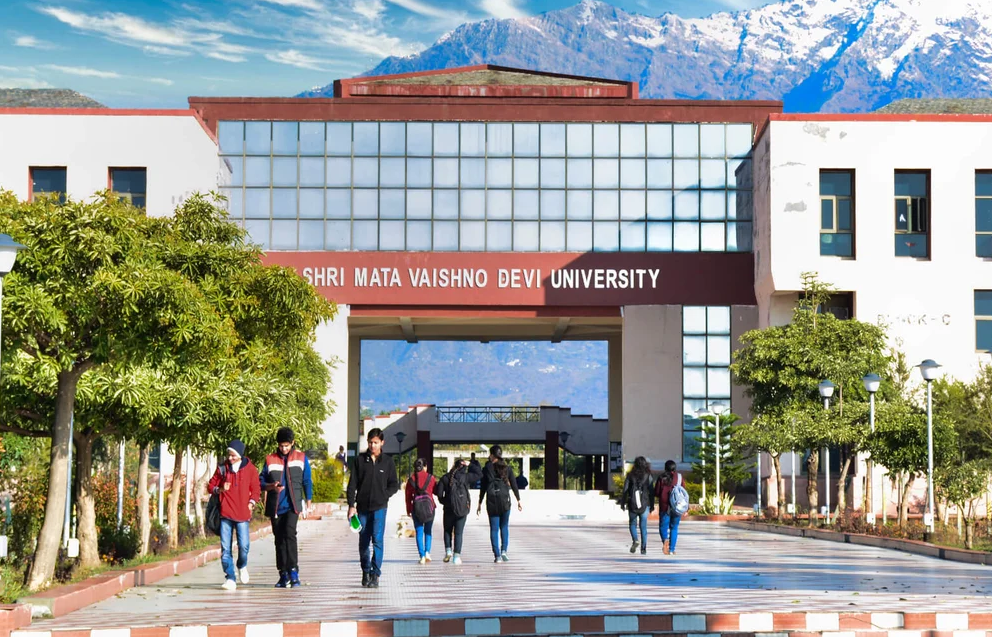
Achieving Sustainable Development Goals: Prospects and Challenges for India
ConferenceINET-YSI SDG Conference in Jammu, India
We invite doctoral students and early career researchers/assistant professors (within 7 years of their Ph.D.) to a two-day conference that aims to foster cross-cultural and interdisciplinary dialogues with attention to SDG goals for India.
-

Climate Change Adaptation and Resilience in Agriculture: Strategies for Sustainable Development in South Asia
ConferenceThe IFMR Graduate School of Business, Krea University, in collaboration with the Institute for New Economic Thinking (INET) and its Young Scholars Initiative (YSI) is organising a conference on Climate Change Adaptation and Resilience in Agriculture: Strategies for Sustainable Development in South Asia
-
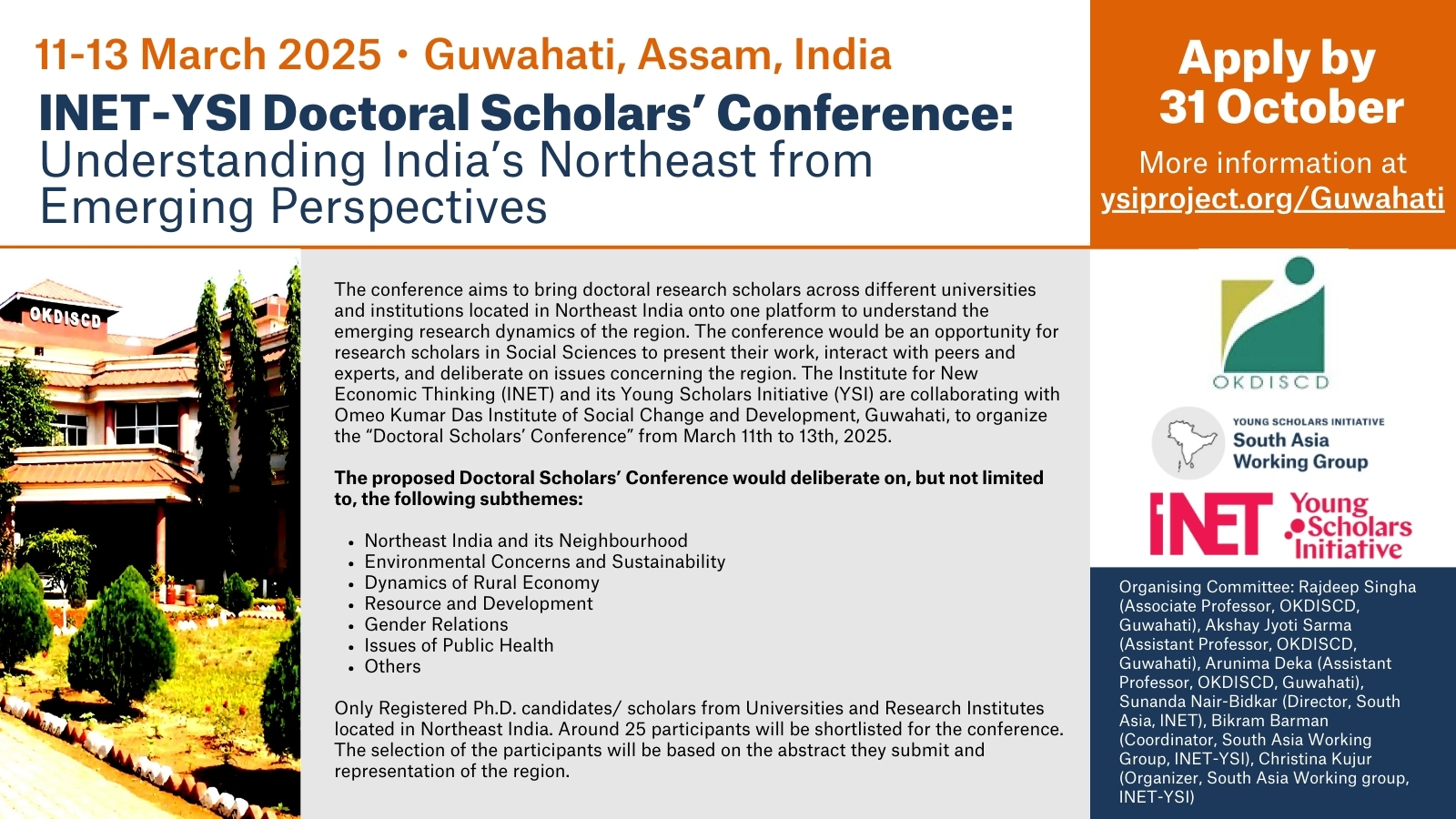
INET-YSI Doctoral Scholars' Conference
ConferenceUnderstanding India’s Northeast from Emerging Perspectives
-
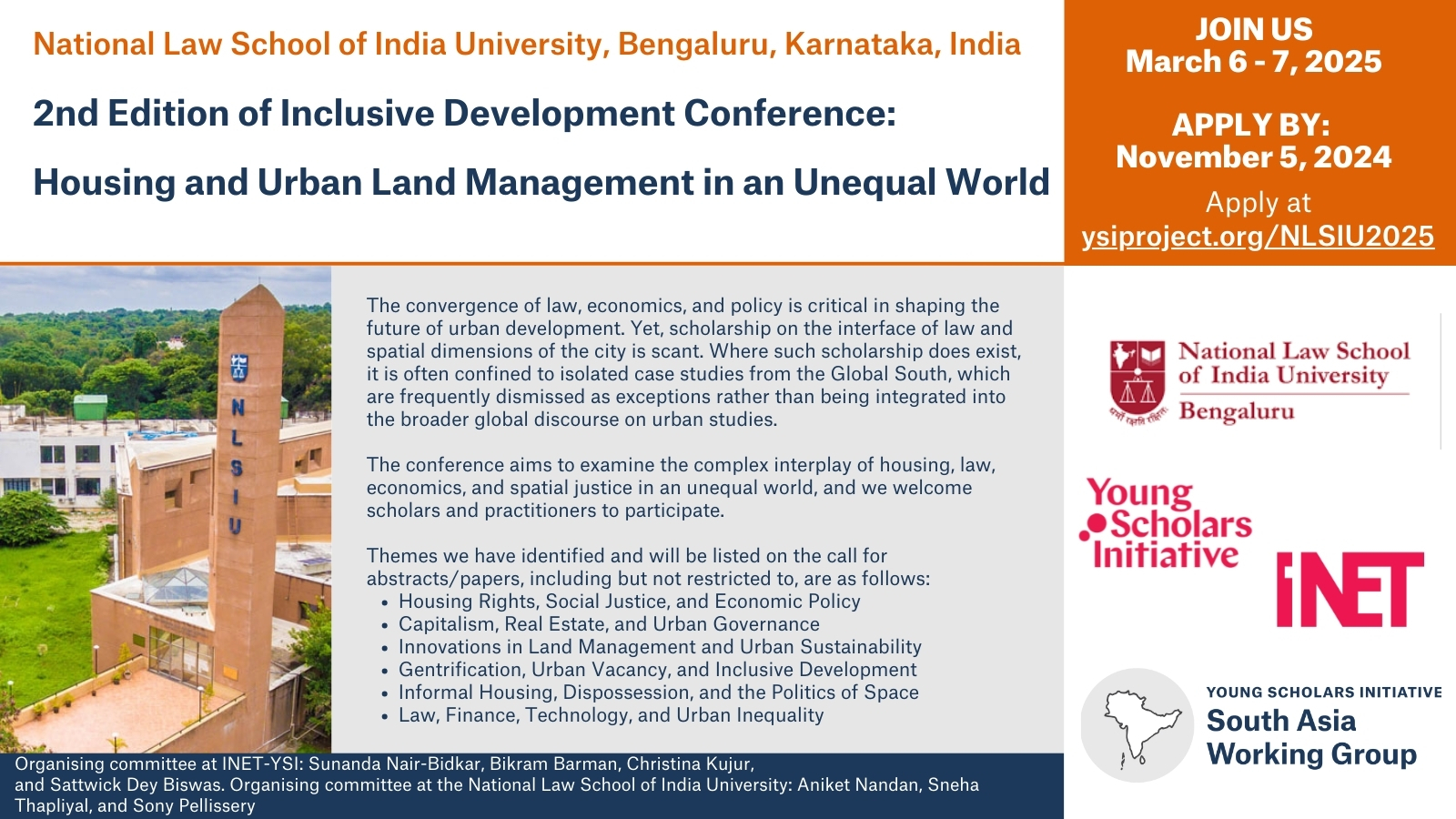
2nd Edition of Inclusive Development Conference: Housing and Urban Land Management in an Unequal World
ConferenceThe conference aims to examine the complex interplay of housing, law, economics, and spatial justice in an unequal world, and we welcome scholars and practitioners to participate.
-
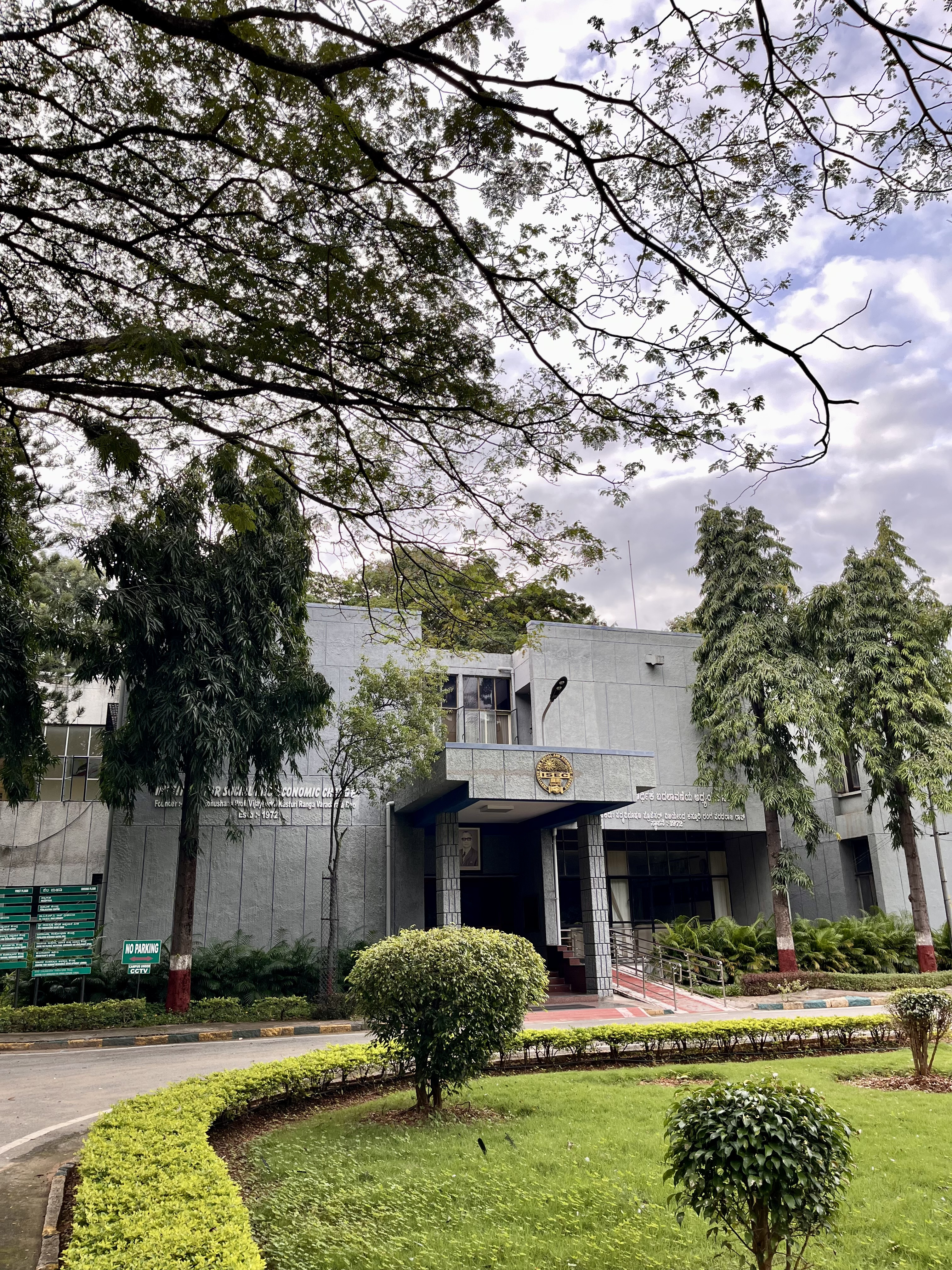
Understanding and Addressing Emerging Inequalities in the 21st Century in South Asia
ConferenceINET-YSI South Asia Regional Conference on Social Change
As the world grapples with rapid technological advancements, demographic shifts, environmental challenges, and governance transformations, new forms of inequality are emerging.
-
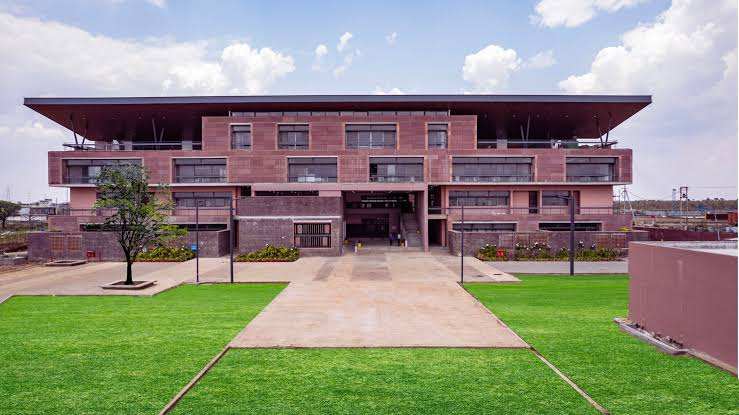
International Conference on Social Identities, Institutions, and Economic Development in South Asia
ConferenceAzim Premji University Bhopal - INET - YSI Conference
The Economics Group at Azim Premji University, Bhopal, India, in collaboration with the Institute for New Economic Thinking and its Young Scholars Initiative (INET-YSI), is pleased to announce an international conference aimed at exploring the intricate relationships between social identities, institutions, and economic development in South Asia.
-
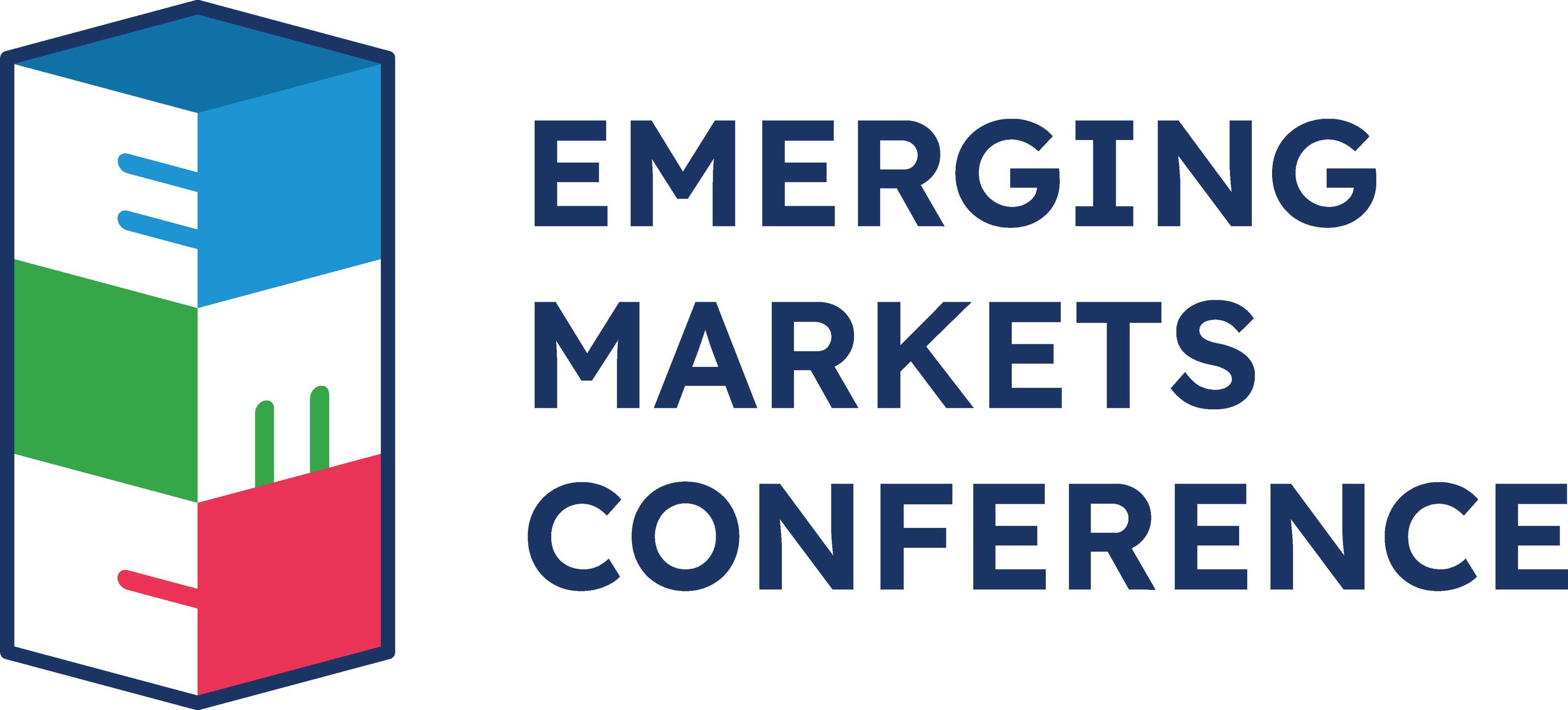
Inaugural Lecture & Panel Discussion at the Emerging Markets Conference (EMC 2024)
ConferenceEMC brings together the thinkers and doers, with insights and inter-disciplinary perspectives on emerging markets. It is about cutting edge ideas, the discussion at the frontiers, and achieving a strategic sense.
-
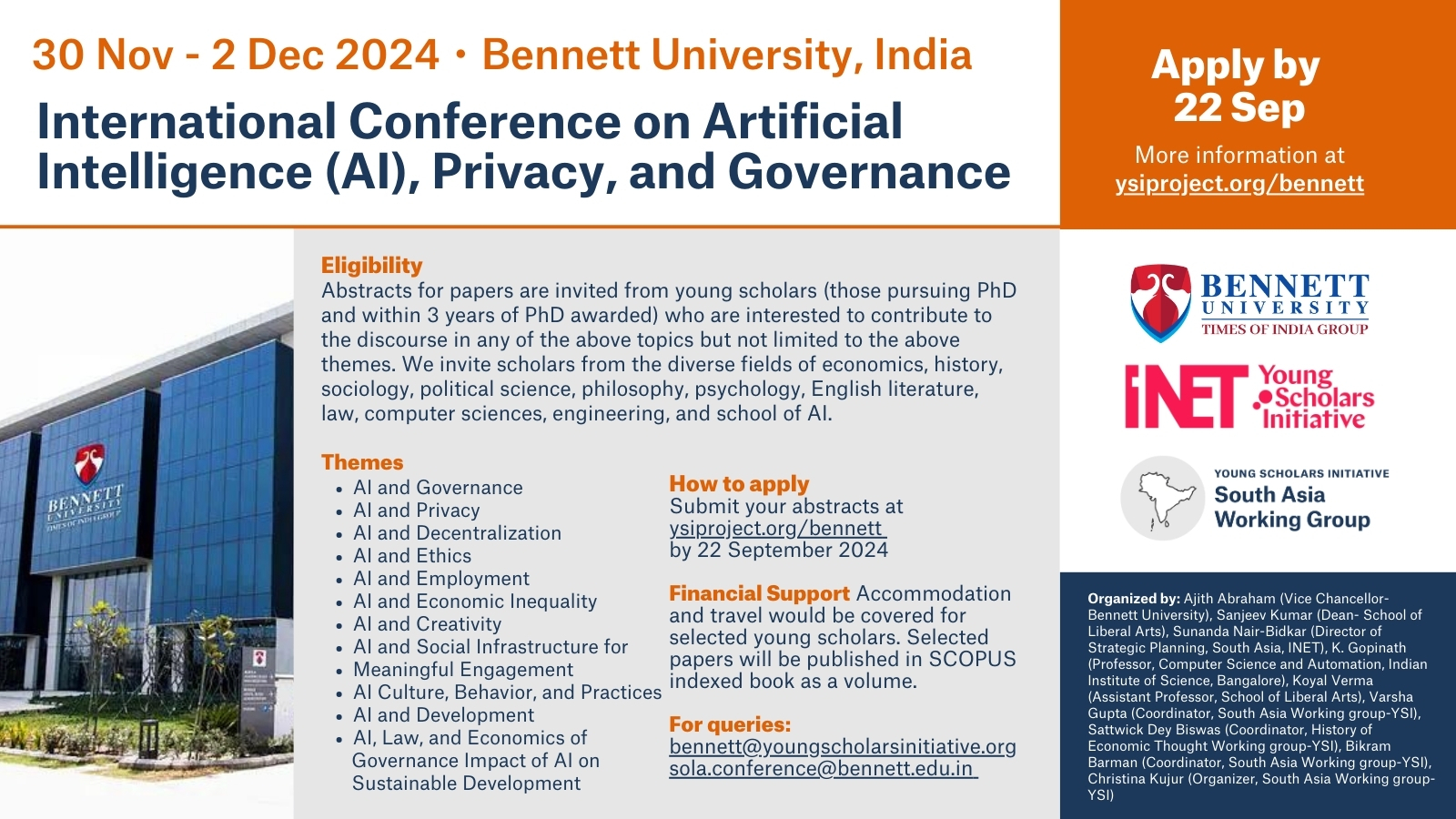
International Conference on Artificial Intelligence (Al), Privacy, and Governance
ConferenceThis conference aims to explore important issues of economics of AI, good governance, humanization of AI technologies, privacy, considerations of creative thinking and imagination, and take a comprehensive look at the challenges and opportunities of AI technologies.